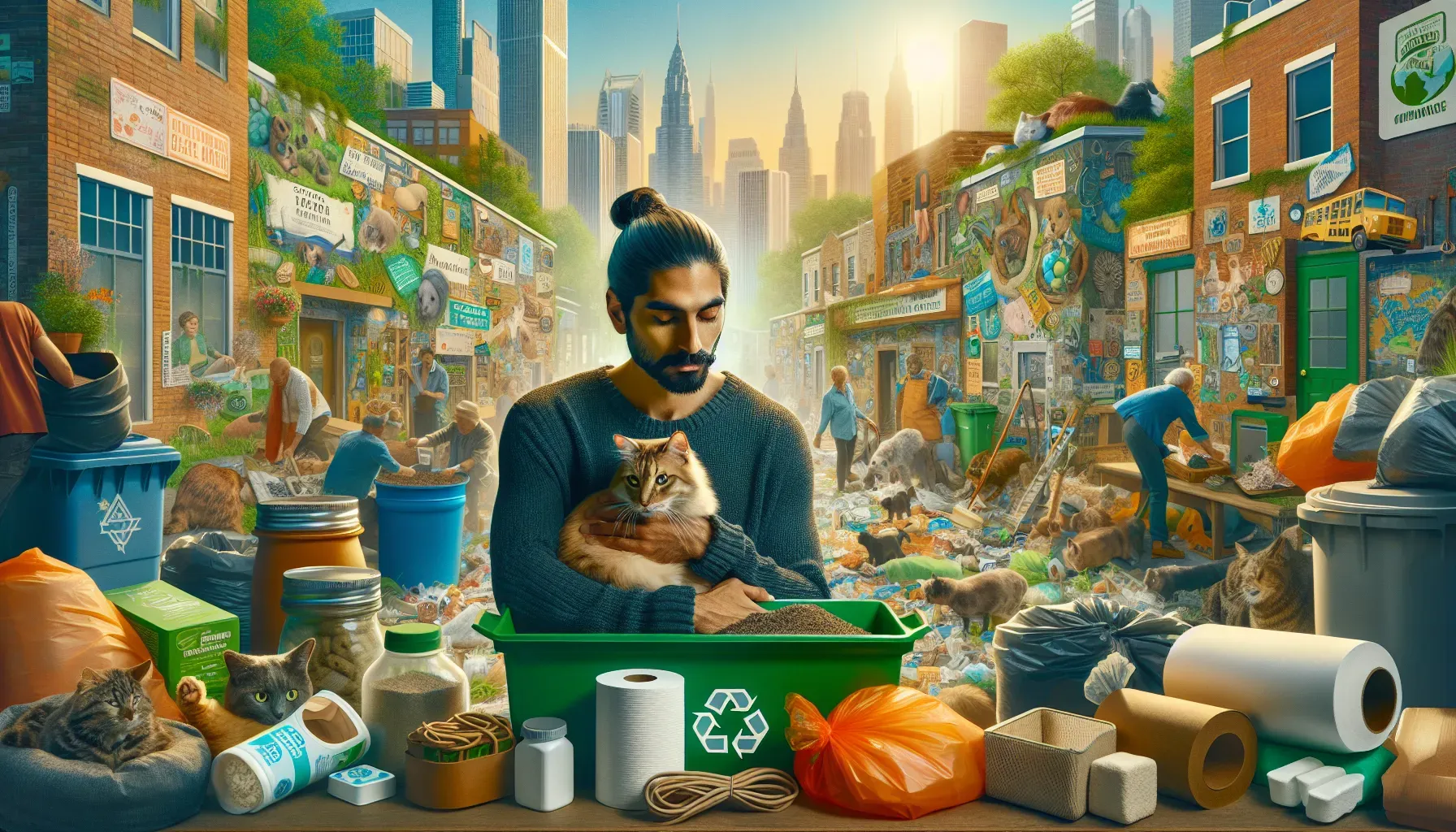Green Innovations in Pet Waste Management: Redefining Responsible Disposal

Green Innovations in Pet Waste Management
In recent years, the pet care industry has made significant strides in prioritizing sustainability and environmental consciousness. From eco-friendly litter solutions to community-led initiatives, innovative approaches are reshaping pet waste management. Let's delve into these green innovations that are redefining responsible disposal and paving the way for a cleaner planet.
Environmentally Conscious Litter Solutions
Environmentally conscious litter solutions have gained traction among pet owners who seek sustainable alternatives without compromising on quality. Traditional clay-based litters often pose environmental concerns due to their non-biodegradable nature and mining processes. As a result, natural and biodegradable options have emerged as favorable choices.
Leading this trend are litter products made from renewable resources such as corn, wheat, and paper. These biodegradable litters are not only gentle on the environment but also offer excellent odor control and clumping abilities, ensuring an eco-conscious yet effective solution for pet waste management.
Composting and recycling pet waste have become innovative methods to mitigate the environmental impact of traditional waste disposal practices. Through composting, organic waste from pets can be transformed into nutrient-rich soil amendments, supporting sustainable gardening practices.
Composting and Recycling Techniques for Pet Waste
Furthermore, recycling techniques, such as converting soiled paper bedding from small pets into compostable material, present alternative waste management approaches that align with eco-friendly principles. These practices demonstrate a commitment to reducing landfill contributions while repurposing pet waste responsibly.
The ubiquitous use of plastic poop bags has contributed to the accumulation of non-biodegradable waste in landfills and natural environments. To address this concern, the growing availability of biodegradable poop bags offers a simple yet impactful solution.
Biodegradable Poop Bags: Eco-Friendly Alternatives
Manufactured from plant-based materials like cornstarch or compostable polymers, biodegradable poop bags swiftly decompose, significantly lessening their ecological footprint. Their widespread adoption by conscientious pet owners underscores the power of small changes in promoting environmental sustainability within the pet care landscape.
Sophisticated waste management systems for pets are integrating renewable energy sources to minimize their carbon footprint. From solar-powered waste disposal stations to energy-efficient processing facilities, these innovations exemplify the marriage of advanced technology with sustainable practices.
By harnessing renewable energy, these systems not only decrease dependence on conventional power sources but also showcase the industry’s dedication to implementing eco-conscious solutions at every stage of pet waste management.
Related Article: Eco-Friendly Pet Accessories: Infusing Style with Sustainability
Renewable Energy in Waste Management Systems
Urban areas face unique challenges in managing pet waste, often struggling with limited green space and high population densities. In response, various community-led initiatives have emerged to address these challenges through collaborative cleanup efforts and innovative repurposing strategies.
Such initiatives encompass educational outreach, park cleanup events, and the utilization of pet waste as a renewable energy source through specialized bio-digesters. This holistic approach engages local communities in embracing sustainable pet waste management practices while fostering a sense of collective responsibility towards environmental conservation.
Community-Led Initiatives for Urban Pet Waste Management
Tails' Talks Blog celebrates these green innovations as significant strides towards responsible pet waste disposal. By championing environmentally conscious products and sustainable initiatives, we empower pet owners to make informed choices that benefit both their furry companions and the planet. Embracing these innovations fosters a harmonious coexistence between pets and the environment, ensuring a greener future for all.
Frequently Asked Questions
Environmentally conscious litter solutions include biodegradable options made from renewable resources like corn, wheat, and paper. These alternatives address the environmental issues posed by traditional clay-based litters, offering effective odor control and clumping abilities while being gentle on the planet.
Composting pet waste transforms organic materials into nutrient-rich soil amendments, supporting sustainable gardening. Recycling techniques involve converting soiled paper bedding into compostable material, reducing landfill contributions and promoting eco-friendly practices in pet waste management.
Biodegradable poop bags are crucial as they decompose quickly, significantly reducing non-biodegradable waste in landfills and natural environments. Made from plant-based materials, their adoption by pet owners reflects a commitment to environmental sustainability and responsible waste disposal practices.






